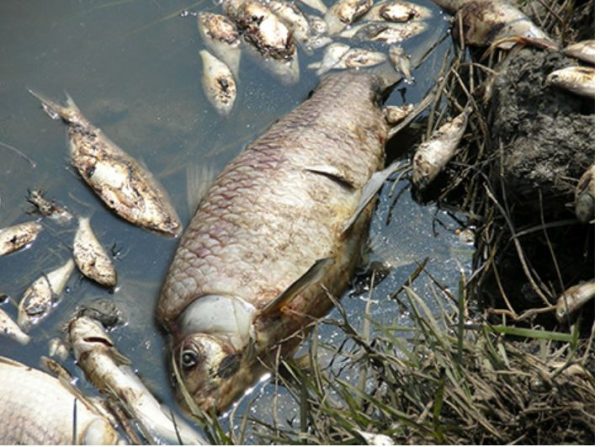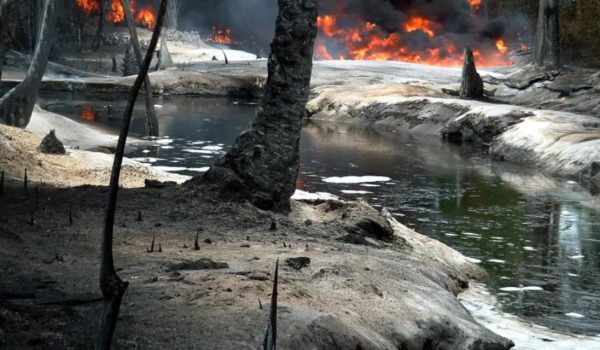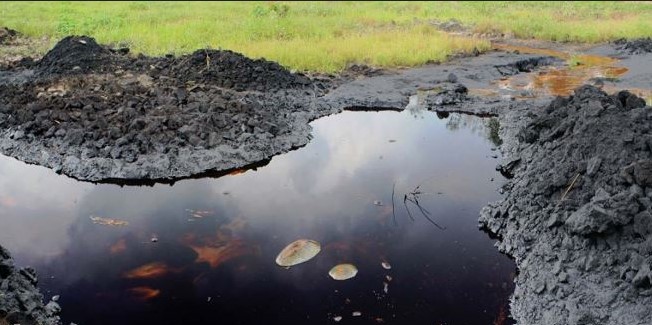In this post we will be looking at Environmental Impact of Oil Spills in Nigeria and Management Tactics and Methods for Reduction of Oil Spillages.
Oil exploration and exploitation is very lucrative, and a major revenue earner in Nigeria. But, like most industrial activities, it produces environmental hazards that are “slow poisons,” in that they often take months and years to cause disease and death. This is unlike the contamination of water, food, and the environment with micro-organisms, which immediately results in ill health. The covert and slow action of the hazards created by oil exploration and exploitation make it difficult to fully appreciate their contribution to the disease burden in Nigeria, especially in the oil-bearing communities, even with the emergence of non-communicable diseases as major causes of ill health in Nigeria.
Read on: Oil Workers Reject Shell’s $2.4bn Assets Sale, Declare Strike Notice
The Niger Delta is an array of geographically contiguous states and convenient political nomenclature for resource allocation and distribution among the aforementioned states also described it as the engine room that drives economic growth and development in Nigeria as up to 80% of the Nigerian economic growth stems from this region. Irrespective of the immense relevance this region bears on the nation’s economy, development is skewed to its disfavor owing to the public policies that are frequently in disfavor of the people.
Read: OIL AND GAS FORUM COMMENCES IN LAGOS STATE
Moreover, oil spillage and environmental degradation characterize this region, obvious opposite to what is expected of an economic and development engine room. The health hazards created by oil exploration and exploitation are covert and slow in action. They are not given the deserved attention in official documents in Nigeria, even as they can be major contributors to the disease burden in oil-bearing communities. This study is an interpretation of the data reported in several published studies on crude oil spills in the Niger delta region, Nigeria.

Environmental Impact of Oil Spills in Nigeria
The Niger Delta is made up of diverse ecosystems of mangrove swamps, freshwater swamps, and rainforests. In fact, that is one of the largest wetlands in Africa as well as one of the ten most important wetlands in the global marine ecosystems. However, the pollution due to oil spillage has gone a long way in transforming it to an inky blackness. As a matter of fact, the area is now so polluted that contaminated streams and rivers as well as loss of biodiversity and the destruction of forests characterize it.
Read: Chevron, ExxonMobil Snub Nigeria in 2024 Spending Plan
Moreover, the type of the oil, the volume of the spill, duration of re-oiling, the extent of oil coverage on exposed roots along with the degree of substrate oiling all determine the damage caused by oil spillage on the mangrove. The toxicity of the oil is also an issue of concern. Light oil may be considered acutely toxic but heavier oil can smother people and could lead to death. The effect of oil spillage on the Niger Delta environment can be well summarized in the word ‘environmental degradation.’ Major oil spills by far affect the environment, destroying aquatic life, degrading the environment and causing the loss of lives. The following are impact of environmental impact of oil spill:
- Impact on Public Health: The oil spillage in Niger Delta has grave health implications. This is because the spills contaminate the surface water, ambient air, ground water and crops with hydrocarbons and carcinogens such as benxo(a)pyrene and polycyclic aromatic hydrocarbon, radioactive elements that occur naturally and besides trace metals can further bioaccumulate in food crops.
- Socio-Economic Impacts: To examine the socio-economic impacts of oil spills, it is imperative to consider that oil spills impact the environment and human health in many negative ways as discussed above. These effects lead to numerous socioeconomic impacts. It will interest one to note that the socio-economic impacts of the oil spill are really multidimensional and contribute a lot to most of the insurgencies in the Niger Delta and Nigeria at large.
Management Tactics and Methods for Reduction of Oil Spillages.
The Nigerian government has taken some remarkable steps and employed different methods to mitigate spillages. Various laws and legislations have been put in place against pipeline vandalism and oil spillage by various means in order to mitigate the issue even though its success has not been significant. Moreover, offenders and conspirers have been labeled capital punishment, and laws have been passed against crude oil spillage by multinational oil companies. However, it is pertinent to take a closer look at some of the steps that were taken by the government over the years against oil spillage.
Read: The Role of Pipelines in the Oil And Gas Industry
Legislative Frameworks Put in Place by The Government: A number of laws have been put in place to govern the petroleum industry in Nigeria and these laws also encompass oil spill management. These policies according to NOSDRA (2008) include the oil pipeline act of 1965, the mineral oil (safety) regulations of 1997, the petroleum regulations of 1967, the petroleum drilling and production regulations of 1969, the oil in navigable water act of 1968, the oil terminal dues act of 1969, the petroleum refining regulations of 1974, the federal environment regulations of 1974, the federal environmental protection agency act of 1990, the national oil spill detection and response agency act of 2006 and the Ministry of Niger Delta.

Moreover, another moves by the Nigerian government in fighting oil spillage is being a signatory of the International Convention of Oil Pollution, Preparedness and Response Co-operation (OPRC). The organization aims at ensuring that the member states develop a national system or plan that would aid it in promptly or effectively responding to the incidence of oil pollution. Moreover, the Nigerian government developed a National Oil Spill Contingency Plan (NOSCP) as a measure to meet up with its OPRC objectives.

